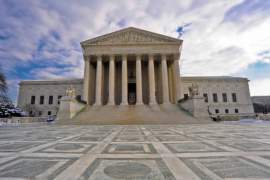
What Does a Federal Appellate Court Do?

What is a Federal Appellate Court?
A Federal Appellate Court is a legal venue in which the review of initial rulings mandated from other courts and legal institutions takes place subsequent to the submission of a petition requesting supplemental judicial review with regard to those case details. Within the United States – in conjunction to the Common Law system enacting a hierarchy with regard to legal venues – the classifications of individual venues exists in terms of titles including ‘higher court’, ‘lower court’, and ‘Federal Appellate Court’:
Lower Court
A lower court is classified as the original courthouse or legal institution in which a trial had taken place. With regard to an motion for an appeal, the individual or entity named as the recipients of that ruling may feel as though the ruling was made in error; this error may have allegedly occurred as a result of legal defect or procedures undertaken in contrast to constitutional legality – as a result, the individual is permitted to submit a petition requesting a trial to be reheard at another venue
Higher Court
A higher court is classified as the legal venue to which an appellate petition is sent. Subsequent to the receipt of a ruling mandated by a lower court, the appellate court – synonymously named as a ‘higher court’ – may choose to undertake judicial review with regard to the petition submitted – in the event that legal defect or a violation of procedure existed, an appeals hearing may take place
Federal Appellate Court
Federal Appellate Court is considered to reside at the top of the legal venue hierarchy instituted within the United States of America. The Federal Appellate Court may undertake a variety of roles, oversight, and responsibility with regard to appeals hearing brought before it:
Appeals hearings that have been motioned from lower courts as per the requests of individuals or entities desiring the enactment of supplemental judicial review; a Federal Appellate Court is considered to be the final step within the appellate process, and only a finite amount of appeals petitions are heard on Federal Appellate level - only after approved petitions and the notice of legal defect taking place within the venues of lower courts will allow for a Federal Appellate hearing
Federal Appellate Courts will typically provide a venue for appeals taking place within governmental departments and agencies; due to the fact that these departments do not exist on a state level, a Federal Appellate Court is rendered as the only applicable and acceptable venue in which to hear such an appeal
Filing a Federal Appellate Petition
A Federal Appellate may differ slightly from peripheral appellate petitions with regard to the fact that it will be the final step of the Appeals Process. In the event that an individual or entity remain dissatisfied with the quality of justice received heard throughout the hierarchy of Appellate court, they will be granted to the opportunity to submit a Federal Appellate Letter; this letter serves as a petition serving as a request to be heard on a Federal level.
NEXT: What is the Federal Appellate Procedure?




















